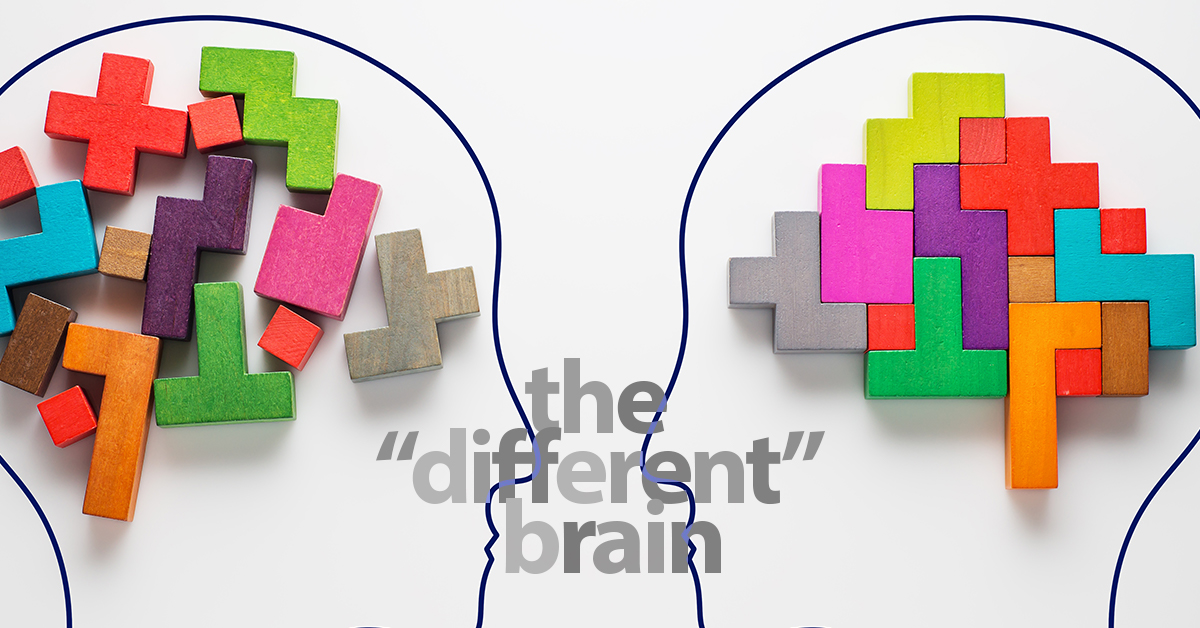Jayne M. Wesler, Esq.
Imagine you’re a ninth-grade student. It’s early morning and the alarm clock rings, jarring you awake. You look at the time. It’s 8 o’clock. ‘OMG!’ your brain shrieks. ‘I’m supposed to be at school.’
You leap from your bed, grab some clothing, pull it on, and run out the door.
You arrive at school late, disheveled, and without any breakfast or lunch. What on earth just happened?
Welcome to the brain. In this case, your brain has attention-deficit disorder, and it works a little differently than a “normal” brain. You’re often easily distracted, forgetful, don’t pay attention to details, and have problems staying organized.
Or, imagine you’re in your third-grade classroom, surrounded by 28 other students. You’re supposed to be taking a test, but the kid next to you is chewing gum. You can hear it squishing and grinding loudly along with the scratching of all the pens on all the other students’ papers. The kid behind you is shooting spitballs at you every minute. You could tell the teacher—you know, see something, say something? —but last time you did that, the kid just beat you up at the park.
You know all the information, but on this test, you have to write it out by hand. If you could use your Chromebook, you’d be done by now, but it’s awkward for you to write with a pen. Isn’t your teacher supposed to provide you with assistive technology? Your stomach is churning.
You are on the autism spectrum and have difficulty processing physical sensations. You have poor fine motor skills, social difficulties, and sensory issues.
These are just two scenarios that children with developmental disabilities face every single day.
It’s challenging to go through life with a disability, but there are silver linings. Students with disabilities are often more compassionate and tolerant of others, more appreciative of the good things in life, are often very loving, and can teach others how to appreciate the smaller victories and other good things in life. They are challenged to look at themselves and the world in new ways that can be inspiring and uplifting.
Welcome to March, which is Developmental Disabilities Awareness Month.
Developmental Disabilities Awareness is a campaign to raise individual and community awareness about the importance of including people with developmental disabilities (DD) in every aspect of school and community life. It sheds light on the challenges that those with DD must face in their everyday lives, challenges which may be invisible to the average person.
There are five recognized developmental disabilities:
1. Autism Spectrum Disorder (ASD). According to the CDC, symptoms of ASD may include:
• Delayed language skills
• Delayed movement skills
• Delayed cognitive or learning skills
• Hyperactive, impulsive, and/or inattentive behavior
• Epilepsy or seizure disorder
• Unusual eating and sleeping habits
• Gastrointestinal issues (e.g., constipation)
• Unusual mood or emotional reactions
2. Cerebral Palsy (CP). The Mayo Clinic reports that CP can affect movement and muscle tone or posture, and is caused by damage that occurs to the immature, developing brain, most often before birth.
3. Intellectual Disability (ID). The CDC says that a child with ID may:
• Sit up, crawl, or walk later than other children
• Learn to talk later, or have trouble speaking
• Find it hard to remember things
• Have trouble understanding social rules
• Have trouble seeing the results of their actions
• Have trouble solving problems
4. Attention Deficit Disorder (ADD and ADHD). Johns Hopkins University says ADD and ADHD are characterized by inattention, impulsivity, and, in some cases, hyperactivity.
5. Learning Disabilities (LD). The National Institutes of Health list some of the characteristics of LD as:
• Problems reading and/or writing
• Problems with math
• Poor memory
• Problems paying attention
• Trouble following directions
• Clumsiness
• Trouble telling time
• Problems staying organized
These disorders may all have different causes: genetic factors, environmental issues, medical conditions, or injury. One thing they all have in common is they all affect the development of children.
Sometimes a developmental disability is immediately apparent at birth. Sometimes a developmental disability may go undetected throughout childhood. Students with a developmental disability will often experience a variety of difficulties during their school careers. They will likely need an assessment by a highly-qualified expert to determine what type of modifications, accommodations, aids, and services the student will require in order to achieve their potential. If you were one of the two students in the scenarios above, you would be in dire need of a revised Individualized Education Plan (IEP) in order to teach you how to deal with the effects of your disability in order to be successful.
IEP services for a student with DD might include physical therapy, occupational therapy, speech-and-language services, specific instructional modalities, and social-emotional learning. Each student’s IEP should be written with input from each service provider after assessment, input from the teachers (both general ed and special ed), and from the parents.
If your youngster faces any of these challenges, we can help. For more than 20 years, Sussan, Greenwald & Wesler has been helping children get the educational programs they need and deserve. Don’t wait! Contact us today at 609-409-3500 or send us an email at info@sgwlawfirm.com.


